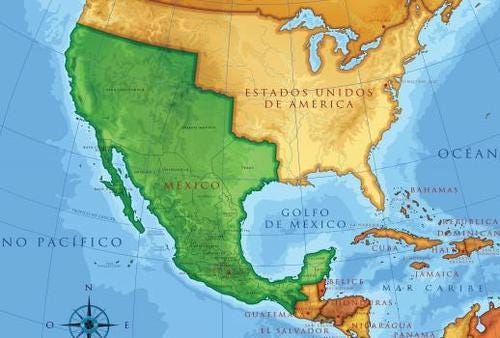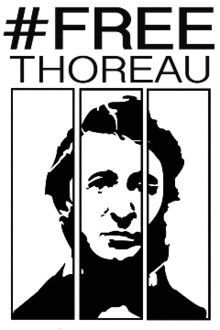As I witness Americans once again dancing to the tune of war drums and I get pushback for not genuflecting at the blue-and-yellow altar, I feel the need to inform. To follow is the first installment of a series of articles highlighting how God’s Country™ has been marketing and using war as a way to fatten the wallets of the powers that shouldn’t be. For starters, please allow me to put the lie to the myths surrounding the Mexican-American War.
When James K. Polk was elected U.S. president in 1844, he had every intention of creating a pretext to stir Americans into action against Mexico. One of the issues of the 1844 election was the annexation of Texas — or “reannexation,” as Polk called it. Apparently, no one bothered to remind him that Texas was not part of the original Louisiana Purchase.
When Mexico gained independence from Spain in 1821, the territory of Texas (along with what are now New Mexico, Arizona, Nevada, Utah, California, and part of Colorado) was Mexican territory. Fifteen years later, Texas claimed its independence as the Lone Star Republic. In Washington, it was viewed as U.S. property.
“Even before Polk’s inauguration, Congress adopted a joint resolution on his proposal to annex Texas,” explains historian Kenneth C. Davis. “When Mexico heard of this action in March 1845, it severed diplomatic relations with the United States.” Undeterred, Polk sent an ambassador, James Slidell, to negotiate a purchase of Texas and California. Slidell was rebuffed.
Polk took a new tack and ordered General Zachary Taylor to lead his troops all the way to the Rio Grande, thus testing the defined borders. “Mexico claimed that the boundary was the Nueces River, northeast of the Rio Grande, and considered the advance of Taylor’s troops an act of aggression,” says Davis.
Colonel Ethan Allen Hitchcock, commander of the 3rd Infantry Regiment, said of this move, “It looks as if the government sent a small force on purpose to bring on a war, so as to have a pretext for taking California and as much of this country as it chooses.”
Translation: It was time to employ the ol’ “sleeping giant” myth.
The pretext arrived on cue when Polk ordered Taylor and his 3500-member “Army of observation” to cross the Rio Grande. Taylor’s quartermaster, Colonel Cross went missing, his body was found eleven days later with his skull crushed. The day after Cross’ high-profile public funeral, a patrol of Taylor’s soldiers was attacked by Mexicans. Sixteen were killed.
Taylor sent a dispatch to Polk: “Hostilities may now be considered as commenced.”
Declaring “the cup of forbearance” to have been exhausted, Polk announced to Congress, “War exists.”
“An agreeable Democratic majority in the House and Senate quickly voted — with little dissent from the Whig opposition — to expand the army by an additional 50,000 men. America’s most naked war of territorial aggression was underway,” Davis explains.
A naked war of territorial aggression, of course, requires plenty of public funding. This reality offered author Henry David Thoreau an opportunity for a powerful example of civil disobedience. When Thoreau was asked by his local tax collector, Sam Staples, to pony up for the poll tax, he refused on moral grounds.
“What am I to do?” asked the flustered Staples. Thoreau’s reply sums it all up in one word: “Quit.”
Ralph Waldo Emerson later visited his friend in jail and asked, “Henry, what are you doing in there?” Again, Thoreau’s answer spoke volumes: “Waldo, the question is what are you doing out there?”
Unfortunately, few Americans followed Thoreau’s lead and in 1846 commenced what Ulysses S. Grant later called “one of the most unjust wars ever waged by a stronger against a weaker nation.”
Sadly, it was more than that. The Mexican-American War and its manufactured pretext created a template for illegal and immoral interventions by the Home of the Brave™ for the next 176 years — and counting.








Thoreau inspired me when I was a young teen. I still hold him in high regard. I've struggled, though, to find others who were similarly inspired. Most people can't walk a picket line alone. I completely understand. It can be scary and isolating.